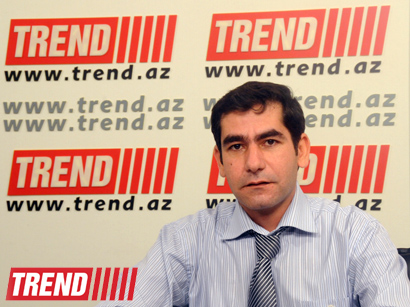Dalga Khatinoglu, Trend Iran News Service chief/
The Pakistani Federal Cabinet's final approval of the Iran-Pakistan gas pipeline construction on Wednesday is a long step towards realising an Iranian gas supply to its eastern neighbour, but not necessarily against the TAPI pipeline with Turkmen origin gas.
Looking at the facts that Iran's gas trade balance is negative, its new gas extraction projects have faced long delays and also the rate of gas consumption in the country is faster than the gas production rate, it seems that buying gas from Iran is more beneficial for Pakistan.
Firstly, the gas delivery was scheduled for 2015. Iranian giant South Pars gas field has five phases including 12, 15, 16, 17 and 18 and with an above 70 per cent progress would come on stream in next few years. The amount of Iran's first stage gas delivery has been set at only 7.8 bcm per year. This volume equals to one South Pars phase's production level.
On the other hand the costs of construction on the Iran-Pak Pipeline (Peace) on the Pakistani side with a 700 km length are estimated at $1.5 billion. Iran is obliged to support a third of the value, giving loans to its future partner as well as ensuring an Iranian company would lay the pipeline in Pakistan.
The pipeline on the Iranian side has been partially ready and the rest, a 300 km length from Iranshahr to the Pakistan border can be commissioned very soon.
A spokesman said work is continuing on the proposed Turkmenistan-Afghanistan-Pakistan-India gas pipeline project.
Iran's gas production increase rate in 2011 compared to 2010 was about 4.6 per cent while this rate for consumption during the aforementioned period was 4.7 per cent. However Iran continues working on upstream projects despite obstacles caused by Western sanctions.
Realising the Turkmenistan-Afghanistan-Pakistan-India (TAPI) pipeline is questionable because of several serious obstacles. First of all TAPI with its1735km length and $9 to $12 billion cost would pass through unsecured regions in Afghanistan and Pakistan.
On the other hand, Turkmenistan has its own principles including delivery gas in borders without any obligation in the pipeline construction or probable cut of gas because of explosions outside its territory. These facts raise the risks for TAPI as well as old historical India-Pakistan hostility. The other fact is that Afghanistan is demanding $300 million in revenue from gas transit which would increase the gas price above one dollar per million BTU and raise the gas price reportedly to above $12 per million BTU. This price is not cheap and interesting for economically suffering Pakistan.
However the Peace Pipeline is not against TAPI. Regarding Iran's disputed nuclear programme, sanctions and payment problems, as well as the necessity of gas import route diversification, Pakistan can continue to assess TAPI project.






